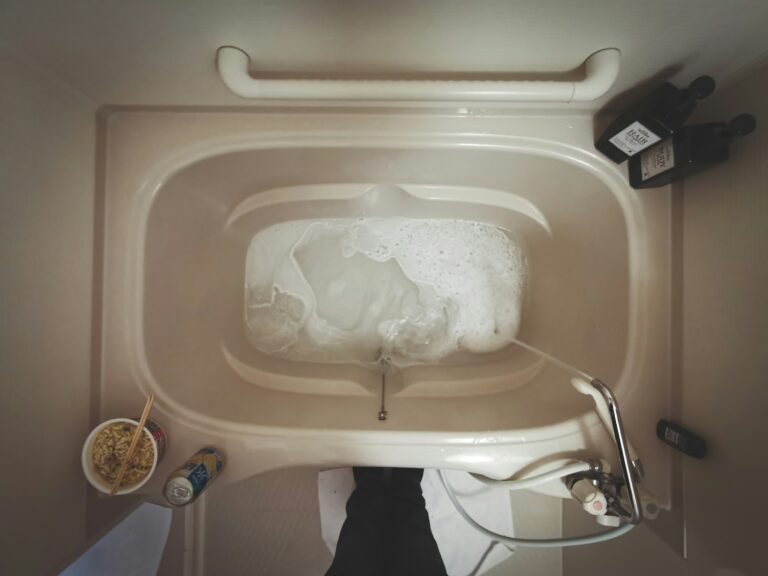The everyday items you should never flush, according to an expert
Key Points:
- Drainage expert reveals the common household items Brits regularly flush that cause severe blockages and expensive repairs costing up to £3000
- Wet wipes, cooking grease, sanitary products and hair are the worst culprits for damaging home plumbing systems and causing extensive property damage
- Expert warns that many products marketed as ‘flushable’ actually cause significant harm to both home drainage systems and public sewers
Homeowners across Britain are unknowingly setting themselves up for expensive plumbing disasters by flushing everyday items down their toilets. These seemingly innocent bathroom habits lead to serious blockages that can cost thousands in repairs and cause significant property damage, one expert is warning.
“Most people have no idea that flushing certain everyday items can lead to such severe consequences,” explains Peter Jones from ADI Leak Detection, a UK-based specialist company focusing on non-invasive detection and repair of water leaks. “The items I see causing the most expensive drainage nightmares are products many Britons use daily.”
Here, Peter lists four of the most common causes of blockages in Brits’ drainage systems, and warns of the potential hidden costs of unknowingly flushing these things down the loo.
The Top Four Culprits Blocking Britain’s Drains
1. “Flushable” Wet Wipes – Not So Flushable After All
Despite marketing claims on packaging, wet wipes are one of the most problematic items causing severe blockages in UK homes. Unlike toilet paper, which disintegrates quickly in water, wet wipes remain intact throughout the sewage system.
“The ‘flushable’ label on wet wipes is incredibly misleading,” Peter explains. “These wipes don’t break down like toilet paper – they clump together in pipes, catching other debris and creating what we in the industry call ‘fatbergs.’ Wet wipes account for approximately 93% of material in sewer blockages according to water industry research.”
2. Cooking Fats, Oils And Grease – The Pipe Clogger
People often pour leftover cooking fats, oils, and grease down the toilet or sink, thinking that running hot water will wash it away. This common misconception leads to some of the most difficult plumbing problems.
“Cooking fats might go down as liquids, but they solidify in your pipes as they cool,” warns Peter. “Over time, these hardened fats collect other debris and create stubborn blockages. The grease doesn’t just affect your home’s plumbing – it contributes to the massive fatbergs forming in public sewer systems, with some famous examples in London growing as large as buses.”
3. Sanitary Products – The Hidden Culprits
Sanitary products, including tampons, pads, and liners, are designed to absorb liquid and expand – exactly what you don’t want happening in your pipes.
“Most people don’t realise that sanitary products are specifically designed not to break down when wet,” says Peter. “When flushed, they expand in the pipes, catching on any slight irregularity in the pipe surface and creating blockages. These can be particularly difficult to clear because the products can become tangled around pipe joints and bends.”
4. Hair – The Silent System Killer
While it might seem harmless, hair is one of the most common causes of bathroom drain blockages. When combined with soap scum and other bathroom products, it forms stubborn clogs that build up over time.
“Hair is particularly problematic because it forms nest-like tangles in pipes that catch everything else going down the drain,” Peter notes. “While most people focus on not flushing larger items, they often overlook hair. For homes with multiple long-haired residents, the problem can accelerate quickly, with complete blockages forming in as little as 3-6 months if preventative measures aren’t taken.”
The True Cost Of Flushing The Wrong Things
The financial impact of improper flushing habits hits homeowners hard in the wallet. Peter outlines the potential costs:
- Emergency callout fees: £80-£150 (higher on weekends and holidays)
- Basic drain clearing services: £150-£300
- CCTV drain surveys to locate deep blockages: £150-£350
- Pipe replacement (for severely damaged sections): £1,000-£3,000 or more
- Property damage from sewage backflow: £2,000-£5,000
“When sewage backs up into a home due to blocked pipes, the damage can be extensive,” warns Peter. “Beyond the repair costs, consider the disruption to your life – unusable bathrooms, damaged flooring, and potential health hazards from raw sewage. Insurance may not cover these costs if the damage is found to be due to improper use of your plumbing system.”
Peter Jones, home maintenance expert at ADI Leak Detection, comments:
“The biggest misconception I encounter is people believing that if something disappears down the toilet, it’s no longer their problem. In reality, that item is likely causing damage somewhere in your plumbing system or contributing to wider problems in public sewers.
“Prevention is always better than cure. Install simple drain guards to catch hair and larger particles. For kitchen waste, collect cooking grease in containers and dispose of it with solid waste. Remember the rule of the three Ps – only flush pee, poo, and (toilet) paper down your toilet. Everything else should go in the bin, regardless of what the packaging might claim. These simple habits could save you thousands in unnecessary repair costs.”
